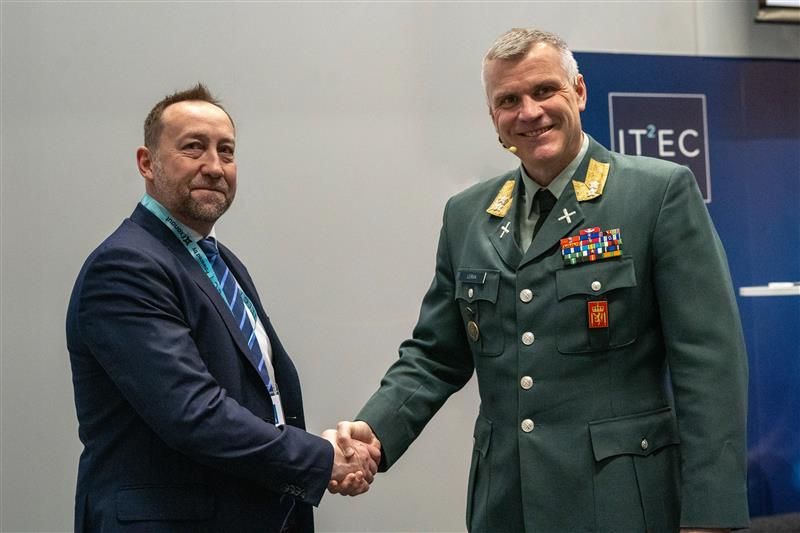IT²EC 2025: Norway awards 4C Strategies GBP1.3m training management contract

The deal supports Norway’s efforts to adapt its training programmes to a new range of threats.
4C Strategies will provide Norway with a full suite of training management software.
The Swedish small and medium-sized enterprise (SME) was awarded a GBP1.3 million (NOK17.7m) contract to provide the Norwegian Armed Forces with its Exonaut software solutions at IT²EC 2025 in Oslo.
Paul Steel, Vice President of 4C Strategies’ EMEA defence business, told IT²EC that the contract covers a five-year period, spanning until December 2029.
The deal “will support their [Norway’s] ability to plan, design, support and deliver collective training” for years to come, he added.
This new direct contract builds upon ‘scheduling and programming’ software which 4C Strategies has been providing to Norway since 2017, giving the country access to the entire Collective Training and Exercise Management (CTEM) software solution.
Lieutenant Colonel Ken-Tore Eriksen, head of the Norwegian Army’s Training and Simulation Section, said in the company’s 25 March press release that Exonaut will “enhance our ability to plan, deliver and validate critical training activities”.
Exonaut is a “comprehensive software platform built with interoperability at its core”, which is capable of being hosted locally or on the cloud, the company states.
The company already provides training management services to NATO members including Australia, Canada, Norway, Sweden, the UK, and the US.
Aligning with Norway’s approach to training and simulation
Opening the conference at IT²EC 2025, Major General Levik described the need for enhanced training and simulation capabilities for “maintaining and further developing the Norwegian Army as an effective fighting force”.
Working across three training environments – live, virtual, and constructive – he spoke of a “constant” requirement to adapt to new threats.
His comments come following the release of Norway’s ‘Long Term Plan on Defence’ last year, which committed NOK600 billion (GBP44 billion) in extra spending on defence over 12 years.
Since the plan’s release – which Levik called the “biggest shift in defence since the 1950s” – Norway has been seeking to reduce the number of simulator variants it operates, better exploit emerging technologies, embed more flexible training systems and make defence procurement more agile, he added.
Alongside this latest contract signed with 4C Strategies, Levik referenced upgrades to simulators for its Leopard main battle tanks, K9 artillery and air defence launchers as central to fulfilling its training requirements.
Author Details
Benjamin Howe
Defence Journalist, Clarion Defence and Security
Benjamin is a UK-based Journalist working for Clarion Defence and Security, having previously worked as a Content and Community Manager on Clarion's digital products.
